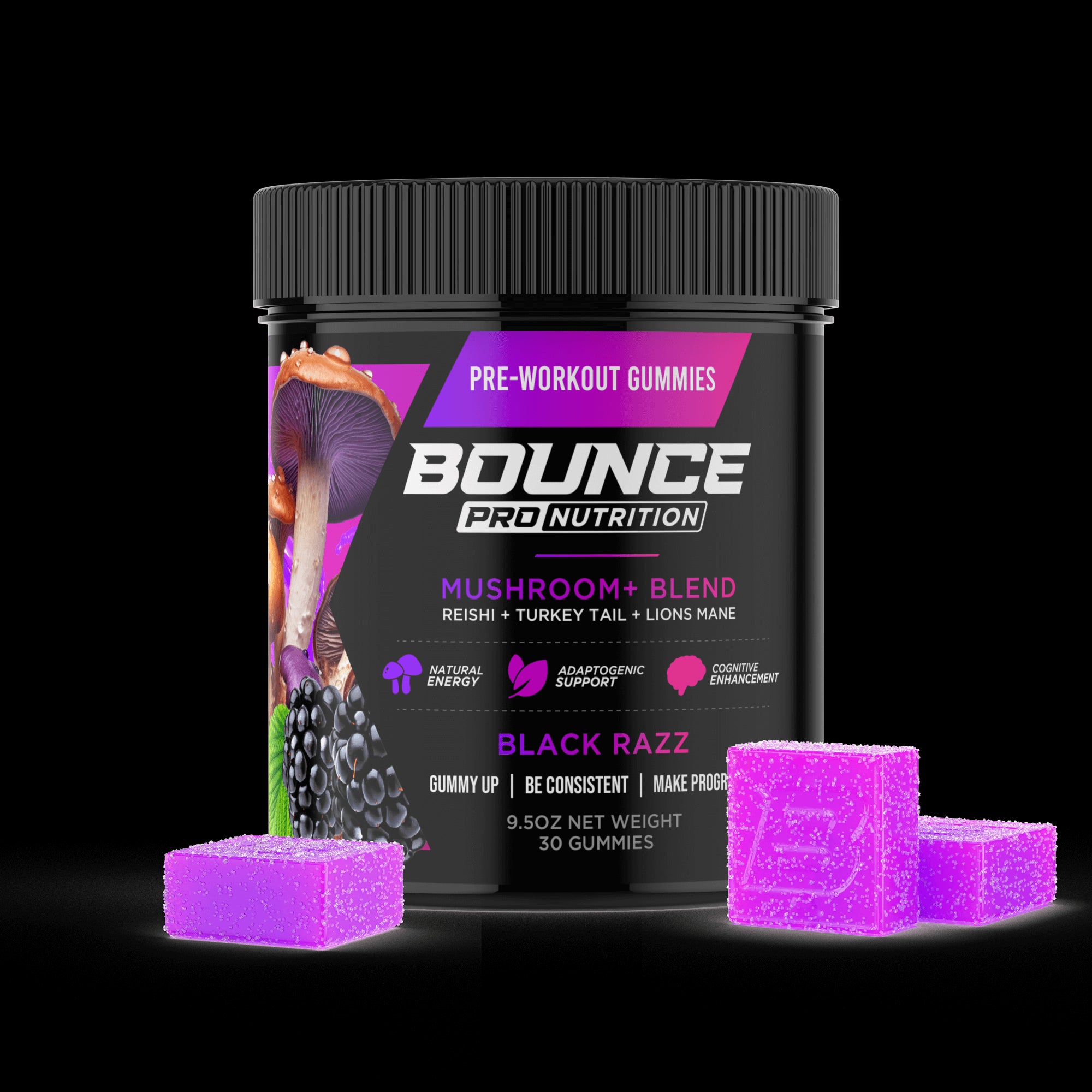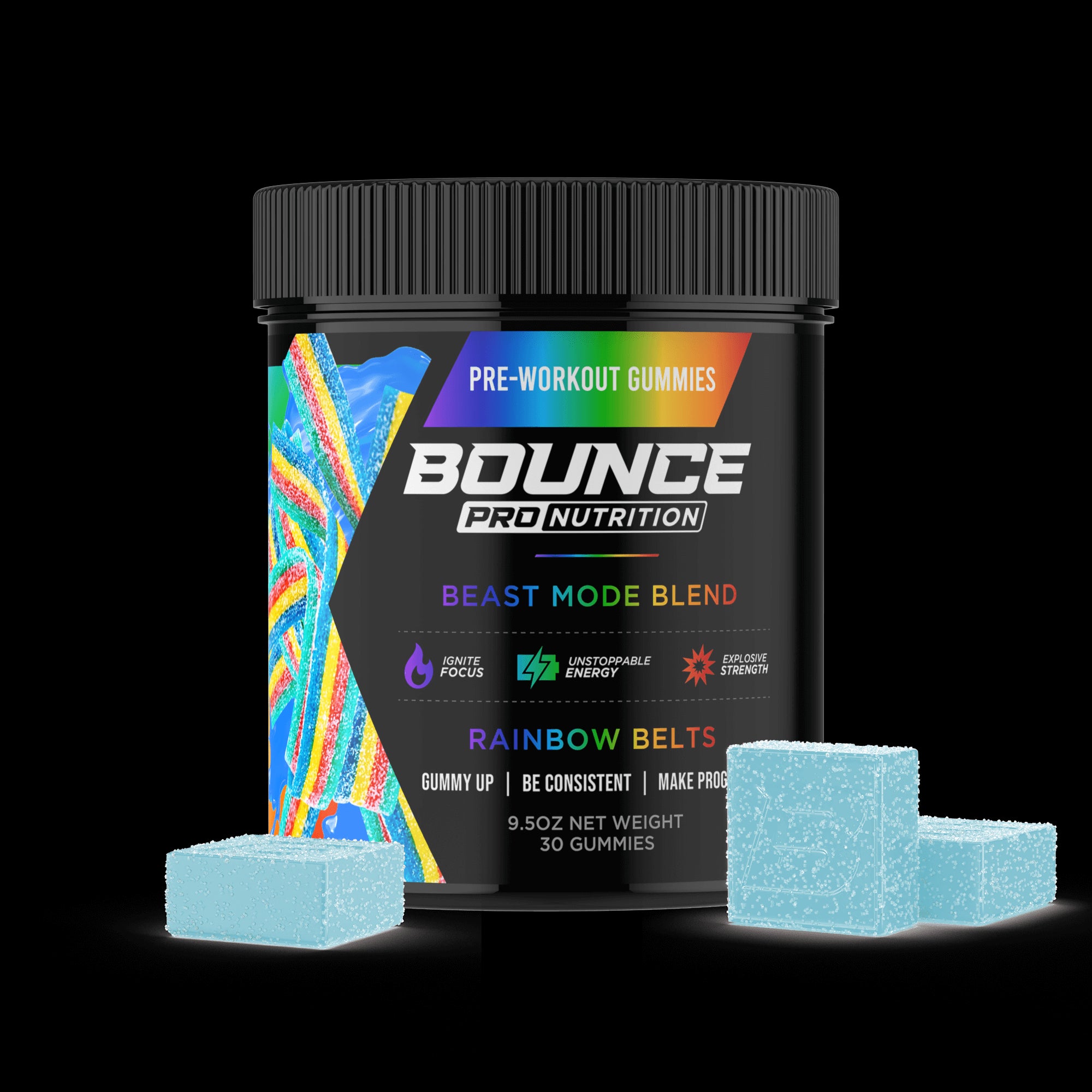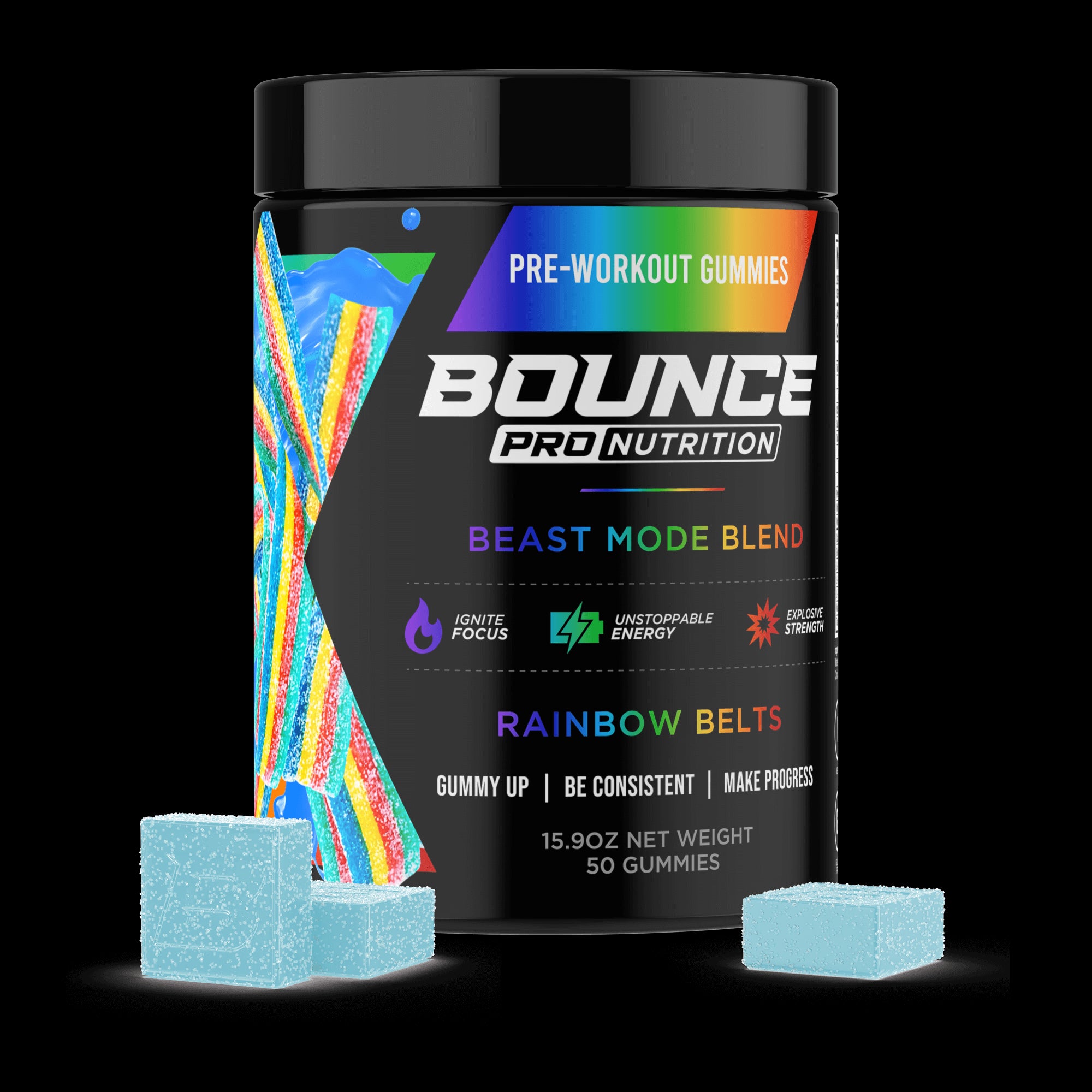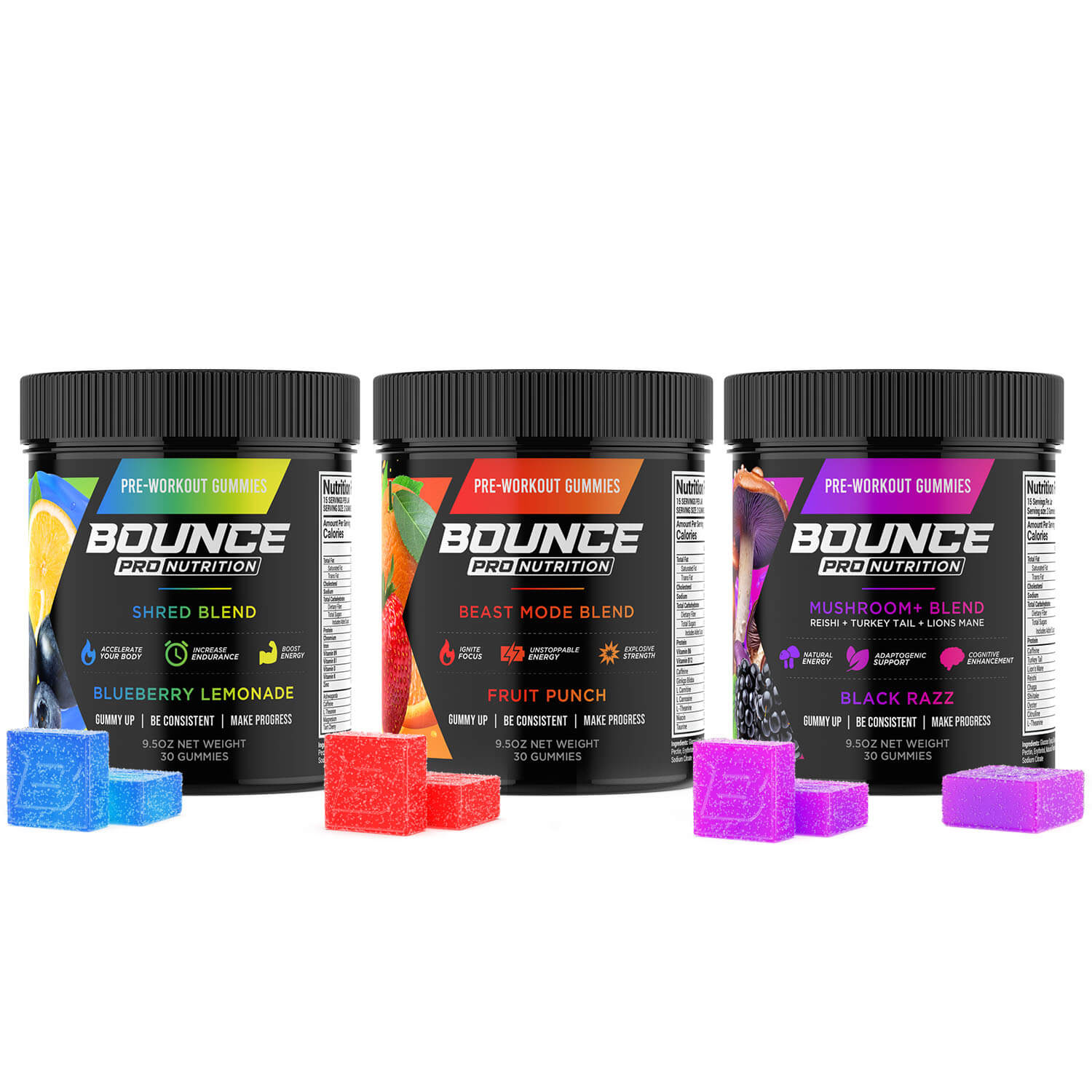Anyone training for a marathon needs some extra help from time to time to push themselves as far as possible. That means finding a natural way to boost energy and stamina, along with muscle strength, to go the extra mile – literally.
So, pre-workout chews then can do just that, with all kinds of ingredients known to improve performance. However, with tons of different formulas to choose from, some chews are obviously going to be better than others.
TO BUY PRE-WORKOUT CHEWS CLICK HERE
What is Marathon Running?
Marathon running is a long-distance running event with an official distance of 42.195 kilometers (26 miles and 385 yards). It's named after the Battle of Marathon, where the Greek soldier Pheidippides purportedly ran from the battlefield of Marathon to Athens to deliver news of the victory over the Persians, before collapsing and dying.
Today, marathons are popular sporting events held all over the world, attracting thousands of participants. They are typically organized as road races, although trail marathons also exist.
Marathon runners require endurance, stamina, and mental fortitude to complete the distance, often training for months leading up to the event. It's a test of both physical and mental strength, and many runners set personal goals to finish within a certain time or simply to complete the distance.
What Types of Marathons are There?
Marathons come in various forms, each offering unique challenges and experiences that attracts different kinds of runners, from the highly competitive to those seeking adventure or a cause to support. Here are some common types below:
- Road Marathons: The most traditional form, conducted on roads, and usually 42.195 kilometers (26.2 miles) long. Examples include the Boston, London, and New York City Marathons.
- Trail Marathons: These are run on hiking trails and natural terrains. They often feature elevation changes and scenic routes, like the ones in national parks or mountains.
- Ultra Marathons: Any race longer than the traditional marathon distance is considered an ultra marathon. These can range from 50 kilometers to even 100 miles or more, and they can be on road or trail.
- Mountain Marathons: A subset of trail marathons, these are held in mountainous areas and involve significant elevation gain and technical terrain.
- Desert Marathons: These are conducted in desert areas, like the Sahara or Gobi Desert, and pose challenges like extreme heat and sandy terrain.
- City Marathons: Held in major cities, these marathons often attract thousands of participants and are known for their festive atmospheres.
- Charity Marathons: These are organized to raise money for various causes, and participants often run in support of a charity.
- Relay Marathons: In these, a marathon distance is divided among a team of runners, each running a portion of the total distance.
- Indoor Marathons: Held in indoor facilities like gyms or arenas, these are less common and involve running many laps on a short track.
- Virtual Marathons: Gaining popularity, especially post-COVID, these allow participants to run the marathon distance at a location and time of their choosing, often tracked via GPS.
- Night Marathons: These start in the evening or at night, offering a different experience with cooler temperatures and unique atmospheres.
- Adventure Marathons: These include additional elements like obstacles or unusual challenges and are often more about the experience than the running time.
How Does Someone Know If They’re Ready to Run a Marathon?
Deciding to run a marathon is a significant and commendable decision that requires careful consideration and preparation, So, if you're considering running a marathon and meet most of the criteria below, you might be ready to start training.
Physical Endurance and Training Base
- Consistent Running Routine Before considering a marathon, you should have a well-established running routine. This means running regularly for at least six months to a year. A solid running base typically includes running three to five times a week, with a mix of short, medium, and long runs. Consistency is crucial to build the endurance necessary for marathon training.
- Long Run Capability One of the most significant indicators of marathon readiness is your ability to complete long runs. Long runs are essential for building the endurance needed to tackle the marathon distance. Ideally, you should be comfortable running at least 15-18 miles in a single run. These runs help your body adapt to prolonged physical exertion and prepare your muscles and joints for the demands of a marathon.
- Weekly Mileage Marathon training involves progressively increasing your weekly mileage. A good rule of thumb is to have a base weekly mileage of at least 25-30 miles before starting a marathon training program. This mileage should be spread across various types of runs, including easy runs, tempo runs, and long runs. Gradually increasing your mileage helps prevent injuries and ensures your body is prepared for the training load.
- Injury-Free Training Running a marathon requires you to be in peak physical condition. If you’ve a history of recurring injuries or are currently dealing with any, it might be wise to address these issues before committing to marathon training. An injury-free training period of at least a few months is a good indicator that your body can handle the demands of marathon preparation.
Mental Fortitude and Commitment
- Mental Toughness Running a marathon is as much a mental challenge as it is a physical one. You need to possess mental toughness to push through the inevitable fatigue, discomfort, and doubt that arise during training and the race itself. If you've successfully completed challenging races like half marathons or other endurance events, it's a positive sign that you have the mental resilience needed for a marathon.
- Commitment and Dedication Marathon training requires a significant time commitment, often involving 12-20 weeks of structured training plans. This commitment means prioritizing your runs, sometimes sacrificing social activities, and adhering to a strict schedule. Assess your willingness and ability to dedicate the necessary time and effort to your training. Consistency and dedication are key to successfully completing a marathon.
Support System and Resources
- Access to Training Resources Having access to proper training resources, such as a well-structured training plan, running groups, or a coach, can significantly enhance your marathon preparation. These resources provide guidance, motivation, and accountability, helping you stay on track and address any challenges that arise during training.
- Supportive Environment A supportive environment, including understanding family, friends, and colleagues, can make a big difference in your marathon journey. Having a network that encourages your training efforts and understands the demands of marathon preparation can help you stay motivated and focused.
Practical Considerations
- Adequate Rest and Recovery Marathon training is intense and places significant stress on your body. Ensuring you have adequate time for rest and recovery is crucial to prevent burnout and injuries. Evaluate your current lifestyle and commitments to determine if you can incorporate sufficient rest days and recovery practices into your routine.
- Nutrition and Hydration Proper nutrition and hydration are fundamental components of marathon training. Ensure you have a balanced diet that fuels your training runs and aids in recovery. Understanding your nutritional needs and having a plan to maintain energy levels during long runs and the race itself is essential.
- Proper Gear and Equipment Investing in the right running gear, such as properly fitted running shoes, moisture-wicking clothing, and any necessary accessories like hydration packs, is vital. Having the right equipment can prevent injuries and enhance your overall training experience.
Trial Runs and Assessments
- Completing a Half Marathon Successfully completing a half marathon is an excellent benchmark for marathon readiness. It provides insight into your endurance levels, pacing strategies, and mental preparedness. If you've completed a half marathon and felt strong, it indicates that you're on the right path toward marathon readiness.
- Mock Marathon Training Runs Incorporating a few mock marathon training runs into your schedule can help gauge your readiness. These runs typically involve running a significant portion of the marathon distance, such as 18-20 miles, at your target marathon pace. Assessing how your body responds to these runs can provide valuable feedback on your readiness and areas that need improvement.
Listening to Your Body
- Body Signals and Feedback Pay close attention to your body's signals throughout your training. Persistent pain, excessive fatigue, or recurring injuries are signs that you may need to reassess your readiness or adjust your training approach. It's crucial to differentiate between normal training discomfort and potential issues that could lead to injury.
- Consulting with Professionals Consulting with healthcare professionals, such as a sports physician, physical therapist, or a certified running coach, can provide personalized insights into your readiness. These professionals can conduct assessments, address any underlying issues, and offer tailored advice to ensure you're prepared for marathon training.
How Does Someone Train and Actually Run in a Marathon Then?
Training for a marathon typically involves several months of progressive (and even intense) distance running, coupled with proper nutrition and recovery strategies. Some people when starting out join a running group or find a running partner for motivation and support.
Completing a marathon is considered a significant achievement and can be a deeply personal goal for many runners. However, keep in mind though, you need to listen to your body and consult a healthcare professional if you experience pain or discomfort.
Training:
- Start Early: Most training plans range from 12 to 20 weeks. Beginners should opt for longer plans to allow their bodies to adapt gradually.
- Build Mileage Gradually: Increase your weekly mileage over time, with a mix of long runs, short runs, and rest days. Also, consider participating in shorter races as part of your training.
- Incorporate Variety: Include interval training, tempo runs, and long, slow runs to build both speed and endurance.
- Cross-Training: Engage in activities like cycling, swimming, or strength training to improve overall fitness and reduce the risk of injury.
- Rest and Recovery: Allocate rest days to allow your body to recover. This is crucial to prevent injuries.
Nutrition and Hydration:
- Balanced Diet: Focus on a balanced diet rich in carbohydrates, proteins, and fats. Carbohydrates are particularly important for energy.
- Stay Hydrated: Regularly drink water and use long training runs to practice hydration strategies for race day.
- Energy Gels/Drinks: Experiment with energy gels or sports drinks during training to understand what works best for you.
Gear and Equipment:
- Running Shoes: Invest in a good pair of running shoes that suit your gait and provide adequate support.
- Comfortable Clothing: Wear moisture-wicking and comfortable running clothes appropriate for the weather.
Race Day Strategy:
- Pacing: Start at a pace you can maintain. It’s easy to start too fast and burn out early.
- Energy Management: Use energy gels or drinks as practiced during training.
- Stay Hydrated: Drink water or sports drinks at hydration stations.
- Mental Preparation: Stay positive and mentally strong, especially during the more challenging latter miles.
Post-Marathon:
- Cool Down: Walk around after finishing to prevent muscle stiffness.
- Rehydrate and Refuel: Drink fluids and eat a balanced meal.
- Rest: Allow your body ample time to recover before resuming intense physical activity.
What are Pre-Workout Chews?
Pre-workout chews are supplements designed to provide a quick energy boost and enhance performance before exercise. They typically come in chewable form, similar to candy or gum, making them convenient to consume without the need for water.
Pre-workout chews often contain ingredients which’re believed to increase energy, improve focus, delay fatigue, and enhance muscle performance during workouts. Users often take them shortly before exercising to maximize their effects.
How We Picked These Top 3 Pre-Workout Chews
As you may have noticed, there are countless pre-workout gummies on the market these days, each with a very distinctive formula. So, how were we able to narrow it down to just a few? Simple, by being attentive to certain variables that actually matter as it pertains efficacy, safety, quality, and potency of the product, such as:
- Potency: Pre-workout chews can contain exceptional active ingredients, but if those ingredients aren’t actually present in high enough concentrations, you’re not going to get any kind of noticeable results.
- Active Ingredients: Pre-workout chews can contain any variety of ingredients that are responsible for the effects of the gummy, like those made to boost energy and those which can improve focus and mood. Some active ingredients are more “proven” and safer than others, with some being tried-and-true for decades, and others being fads that just don’t ultimately deliver.
- How They Taste/Their Texture: If a chew doesn’t taste good, you’re not gonna want to keep eating it, and so even if it delivers in efficacy, it’s a letdown. The same goes for texture, since some companies make great-tasting chews, but the texture is just too off-putting.
- Inactive Ingredients: Inactive ingredients are also very important, with natural ingredients always being ideal. We steered clear from chews that use loads of fillers, artificial additives, and known allergens.
What are the Best Pre-Workout Chews for Marathon Training?
Now, let’s take a look at our favorite formulas specifically for marathon training, so that you can get started with a new and effective routine. Again, this is all based on the criteria above, so you know you’re getting a top-quality pre-workout product all round. Remember, these are not substitutes for proper running strategies and techniques.
Marathon Running Pre-Workout Chew Option #3: Bounce Nutrition Best Mode Blend Gummies
Beast Mode gummies have a vegan formula with a delicious fruit punch flavor, and contain caffeine, gingko balboa, theanine, L-carnitine, and Vitamin B12, in high enough concentrations to give you powerful effects that can help you tackle your marathon training regimen on a whole new level.
Designed specifically to produce a significant boost in energy, endurance, and mental stamina, you can’t go wrong with these gummies if you’re a fan of higher-intensity training.
Marathon Running Pre-Workout Chew Option #2: Bounce Nutrition Shred Blend Gummies
Shred Blend is a vegan formula that tastes just like mouthwatering blueberry pie, and it even offers a fantastic blend of natural plant derivatives known for their powerful effects that directly improve your marathon training game.
L-theanine, caffeine, magnesium, ashwagandha, and tart cherry work together synergistically to give you the energy and concentration you need to get through a training session, with ashwagandha and magnesium offering the added benefits of helping the body respond better to both physical and mental stress.
Marathon Running Pre-Workout Chew Option #1: Bounce Nutrition Mushroom Blend Gummies
Our enticing Mushroom Blend pre-workout vegan formula supplies a fully unique take on pre-workout supplements. Its amazing Black Razz flavor and succulent texture alone is worth trying, but it’s the blend of active ingredients that really impresses.
Magnesium, caffeine, lion’s mane, cordyceps, and reishi mushrooms come together to provide a carefully selected blend of adaptogens, minerals, and stimulants that improve energy, boost cognition, and lift your mood to help you get through the most demanding workouts, even on days when you’re not feeling up to it.
Bounce Nutrition Pre-Workout Chews Can Help You Go That Extra Mile!
Deciding to run a marathon is a significant and commendable decision that requires careful consideration and preparation. Luckily, pre-workout chews can make the process just a little bit easier, thanks to highly effective ingredients that work overtime so that you don’t have to.
Explore Bounce Nutrition Pre-Workout Chews, as you will know you’re getting the finest ingredients possible, all of which are proven to be both safe and effective. Remember, the journey to the starting line is just as important as crossing the finish line, so approach your training with dedication, patience, and a positive mindset.

























